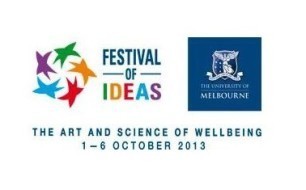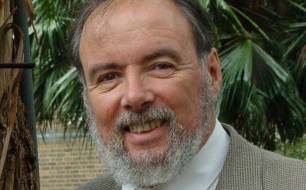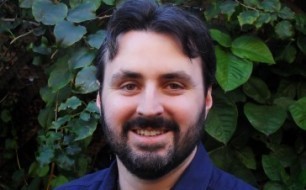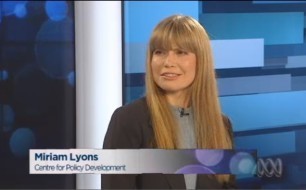Centre for Policy Development's Blog, page 66
August 5, 2013
The Canberra Times | 6 August 2013

Public sector union halts Labor support, Ross Peake reports.
As the government plans to cut another $1.8 billion from the public service budget the public sector union will continue to suspend its support for the ALP’s election campaign. CPSU national secretary Nadine Flood is calling for better policy from the ALP to support a public sector already under stress “you only have to walk into a Centrelink office to know the queues are already long enough”.
CPD research director Christopher Stone’s new report Death by a thousand cuts: How governments undermine their own productivity with co-author Kathy MacDermott, examines how productive budget cuts really are. They argue that “blind, across-the-board cuts” hurt our ability to meet rising expectations of public services.
“The authors examine recent cuts in the federal and West Australian public sectors, and highlight what they say are long-term problems resulting for the Commonwealth, WA, and other states and territories.”
Read the article at The Canberra Times
Check out the full report Death by a thousand cuts
 Help us counter evidence-free attempts to downsize and privatise our public services –
Become an Ideas Sustainer.
Help us counter evidence-free attempts to downsize and privatise our public services –
Become an Ideas Sustainer.
August 4, 2013
Death by a thousand cuts: how governments undermine their own productivity | OCCASIONAL PAPER
A new report by Centre for Policy Development (CPD) public service research director Christopher Stone and industrial relations policy expert Kathy MacDermott finds that blind, across-board-cuts reduce productivity, stifle innovation and damage government institutions.
 Rising expectations of public services cannot be met in the face of blind, across-the-board cuts. This report examines recent cuts in the Western Australian and federal public sectors, and highlights some long-term problems resulting for the Commonwealth, WA, and other states and territories.
Rising expectations of public services cannot be met in the face of blind, across-the-board cuts. This report examines recent cuts in the Western Australian and federal public sectors, and highlights some long-term problems resulting for the Commonwealth, WA, and other states and territories.
Many governments in Australia and internationally are choosing to “avoid responsibility” for service shortfalls when making budget savings, by applying across-the-board cuts rather than identifying the services which should be reduced or ceased.
Kathy MacDermott points out that staff engagement itself is a key factor in raising productivity, but that engagement is eroded by government rhetoric which denigrates the public sector in an attempt to justify cuts, and by the cuts themselves’ increasing workloads on remaining staff.
Chris Stone said his research shows the approach to be, “ultimately self-defeating. Not only are the cuts affecting services, they are causing long-term damage to the institutions of government…”
Cuts can exacerbate challenges already affecting workforce capability in the public sector, such as an ageing workforce wherein 23% of WA public servants will reach retirement age in the next 10 years. Skills shortages are becoming apparent in areas such as IT, where recruiting skilled staff is now a problem. The small size of most rural agencies allows less flexibility to absorb across-the-board budget cuts meaning salaries are hit harder in remote areas. The median public sector salary in WA regional areas is $5,554 lower than those in Perth, making the attraction and retention of skilled staff difficult.
The paper identifies some undesired consequences of indiscriminate cuts, such as:
loss of workforce knowledge and skills
loss of productivity and innovation, due to reduced engagement, lack of resources and time
loss of trust and confidence in public sector institutions.
The report argues that ineffective services and less engaged public servants can lower the popularity of the government in power, hamper the enforcement of laws and regulations, and reduce popular engagement with the democratic process.
Death by a thousand cuts gives recommendations to avoid across-the-board cuts, increase public sector productivity through enhanced employee engagement; reduce the loss of corporate knowledge by improved recruitment and staff retention; protect rural services from staffing problems and disproportionate effects of cuts; and encourage innovation by facilitating input from skilled staff. A ‘blunt’ instrument’ method of across-the-board cuts that does not acknowledge the issues at hand will produce budget savings only in the short term, and will create significant long term problems.
Download Death-by-a-thousand-cuts OP30
August 1, 2013
Anglicare Australia National Conference | Brisbane 15-18 September

2013 Anglicare Australia National Conference
This year Anglicare Australia will focus on the theme Drawing on our diversity for their 2013 conference. CPD’s executive director Miriam Lyons has been invited to present as one of the keynote speakers along with Professor Ross Homel, Professor Ian Maddocks, Dr Sally Goold and Bishop Andrew Curnow.
“Drawing on our Diversity – provides the perfect opportunity to explore the multiplicity of our network, the range of work we do and the diverse skills within the network, while remembering the shared values and commitment to a fairer society that brings us together.”
WHERE
Rydges South Bank, Brisbane
WHEN
Sunday 15 to Wednesday 18 September, 2013.
Download the brochure for the conference program
CONTACT
ADMISSION:
Download the registration form to book your place today!
2013 Festival of Ideas | Melbourne 1-6 October

2013 Festival of Ideas
The University of Melbourne is hosting the 2013 Festival of Ideas. Miriam Lyons, CPD’s executive director, will be presenting along with a diverse array of speakers such as Kathy Lette, Mark Scott and Professor Marcia Langton.
“The Festival of Ideas is designed to capture and express the unique ability of the higher education sector to contribute to our national and global conversations. Encompassing the broad themes of “The Art and Science of Wellbeing,” the 2013 Festival will bring thought provoking presentations, discussions, debates and special events to Melbourne in October 2013. A source of dynamic discussion for you!”
WHERE
University of Melbourne, Victoria
WHEN
Tuesday 1 and Sunday 6, October, 2013.
CONTACT
ideas-info@unimelb.edu.au
ADMISSION:
Ticketing and full program to be released in September
July 30, 2013
Inside Story | 12 July 2013

The most efficient and fairest option is a single national insurer.
Ian McAuley, CPDfellow and Adjunct Lecturer in public sector finance at the University of Canberra, discusses the relevance of private health insurance and how rebates and subsidies could be better spent on healthcare. A more socially cohesive approach could be fairer with those able to afford it making payments into a system that currently has free services such as public hospitals. A ‘gated community’ is what private health care and hospitals create while costing $2.4 billion a year.
“Policy-makers need to ask not only whether private insurance adds value to healthcare — and our analysis finds it does not — but also whether it could serve a useful role under any circumstances. Like other industries, this part of the finance industry should be required to show that in return for budgetary and regulatory support it can achieve outcomes that could not be gained through other, less expensive means. We believe it cannot.”
You can read more about private health insurance in CPD’s report from 2012, Private Health Insurance: High in cost and low in equity, by John Menadue and Ian McAuley.
Check out Ian McAuely’s article at Inside Story.
Change can happen faster than you think – help us seize the moment and point to the alternatives. Add your voice to ours!
July 24, 2013
Progress 2013 | Melbourne 7-8 November
 Discuss new and daring ideas for our country’s future.
Discuss new and daring ideas for our country’s future.
Progress 2013 7-8 Nov | Melbourne
This year’s Progress event will host inspirational speakers who offer wisdom and insight into key challenges facing Australia.
The conference provides a chance to learn new campaign skills and build partnerships spanning across issues and sectors. Speakers include National Field Director of Obama for America Jeremy Bird, World Vision Australia CEO Tim Costello and Louise Tarrant, National Secretary for United Voice.
“Progress 2013 is the pivotal event for leaders, campaigners, and thinkers who believe in a fairer and more forward-looking Australia. Together, we will think, learn, and collaborate around our collective task of building a better society.”
WHERE
Melbourne Town Hall
WHEN
Thursday 7 and Friday 8, November, 2013. 7:30am – 6pm.
CONTACT
ADMISSION:
Register at progress2013.org.au
Tickets will increase in cost as the event gets closer, and are expected to sell out. Limited scholarship and discounted tickets available.
Progress 2013 is an initiative of the Centre for Australian Progress
July 23, 2013
TDSA Biennial Conference 2013 | Brisbane, 24 & 25 July

Not-for-Profits – Survive or Perish.
The Transport Development & Solutions Alliance upcoming conference will be focusing on the future of NFP organisations. Christopher Stone, CPD’s research director, will deliver his keynote talk, ‘Policy context for the third sector – future direction’ under the theme ‘The Big Picture’.
“The NFP sector is a major part of a healthy society along with the public and private sectors. TDSA’s focus on Driving Governance in 2013 seeks to stimulate its membership, readership and conference attendees to gain more knowledge and skills to be better able to drive their future rather than being driven.”
WHERE
Robertson Gardens Conference Centre, Comfort Inn, 281 Kessels Road, Nathan, Qld, 4111
WHEN
Thursday 25 & Friday 26 July, 2013.
CONTACT
infotdsa@gmail.com
ADMISSION:
TDSA Member - $390.00
Non-Member - $490.00
Sign up and book your place at TDSA or Download the program and registration form
Short-term thinking cannot address Australia’s long-term dilemmas – Help us look further ahead!
TDSA BIENNIAL CONFERENCE 2013 | Brisbane, 24 & 25 July

Not-for-Profits – Survive or Perish.
The Transport Development & Solutions Alliance upcoming conference will be focusing on the future of NFP organisations. Christopher Stone, CPD’s research director, will deliver his keynote talk, ‘Policy context for the third sector – future direction’ under the theme ‘The Big Picture’.
“The NFP sector is a major part of a healthy society along with the public and private sectors. TDSA’s focus on Driving Governance in 2013 seeks to stimulate its membership, readership and conference attendees to gain more knowledge and skills to be better able to drive their future rather than being driven.”
WHERE
Robertson Gardens Conference Centre, Comfort Inn, 281 Kessels Road, Nathan, Qld, 4111
WHEN
Thursday 25 & Friday 26 July, 2013.
CONTACT
infotdsa@gmail.com
ADMISSION:
TDSA Member - $390.00
Non-Member - $490.00
Sign up and book your place at TDSA or Download the program and registration form
Short-term thinking cannot address Australia’s long-term dilemmas – Help us look further ahead!
July 19, 2013
2ser The Daily | 19 July 2013
 Could higher taxes be the answer to a tight budget? …
Could higher taxes be the answer to a tight budget? …Joel Rosenzveig hosts Ben Spies-Butcher, CPD fellow and lecturer in Sociology at Macquarie University, on 2ser’s The Daily to discuss taxation. Ben suggests that debate has led to the belief that it is nearly impossible politically to increase taxes, despite people’s reporting that they are willing to pay more if the funds go towards public service.
“Did you know that the government spends more money on tax breaks for the superannuation of high income earners than it does on government pensions for people with low incomes? Eradicating these tax breaks is just one of the ways that our government could raise revenue to fill budgetary holes, instead of merely cutting spending to much-needed government programs.”
CPD’s forthcoming book Pushing our luck will include a chapter on taxation by Shaun Wilson, Adam Stebbing, Adrian March and Miriam Lyons, entitled ‘Whose shout?’. Our authors look at the importance of taxation, and its potential for reducing social inequity and improving social mobility. Australian attitudes to tax rises are examined, and the question is posed as to whether we need to embrace the idea of increasing taxation.
Short-term thinking cannot address Australia’s long-term dilemmas – Help us look further ahead!
The Drum | 18 July 2013

Harsher rules on ‘economic migrants’, review of refugee convention and regional cooperation.
Miriam Lyons, executive director of CPD, joins the panel on the Drum with Katharine Murphy, deputy political editor Guardian Australia, Rowan Dean, associate editor for The Spectator, and hosted by Steve Cannane.
Miriam debunked the assertion that most refugees by boat were ‘economic migrants’, as having no supporting evidence. The panel also addressed proposed changes to fringe benefits tax, memoirs from Julia Gillard and Simon Cox of The Economist joined to discuss the future of Australia’s economy as China’s growth slows.
“On The Drum, Kevin Rudd wants tighter rules for economic migrants, Julia Gillard has won a book deal and the Taliban defends shooting a 15 year old schoolgirl.”
 Help us fill public debates about refugees and asylum seekers with good ideas; not more fear and misinformation –
Become an Ideas Sustainer.
Help us fill public debates about refugees and asylum seekers with good ideas; not more fear and misinformation –
Become an Ideas Sustainer.
Centre for Policy Development's Blog
- Centre for Policy Development's profile
- 1 follower



